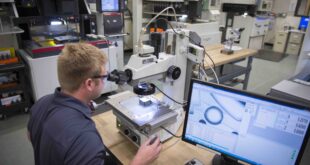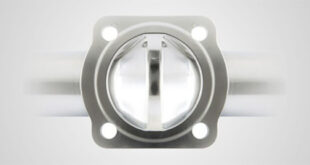Julie Walton shares insights on how traditional engineering is developing in the modern digital world
Tradition suggests engineering is the design and maintenance of engines or machines, yet the modern-day engineer has evolved into a problem solving, creative thinker.
Data and Machine
Transformations in machinery means the modern-day engineer must be easily adaptable to these changes.
Keeping mechanical skills up to date, as well as offering a more in-depth understanding of electrical and technical areas, are both key attributes needed in a digital world.
Even with the changes in technology, our machinery still presents the need for manual engineering with some of the mechanical parts, especially within the hardware.
However, a machine component like the SoniXs sealing head has less moving parts and relies on technology to work efficiently.
The ability to switch between manual and digital tasks is a key attribute for any modern-day engineer,.
Communication and training
Modern-day technology continues to emphasise the need for virtual communication tools. This increasing demand for communication and accountability, necessitates an ability to communicate to shape the opinions and attitudes of both the business client and fellow engineers.
As well as explaining clearly to everyone, from a machine operator or engineer, through to plant managers and business directors, modern-day engineers must be able to transfer between oral, visual and written mechanisms.
A good engineer will also be able to share their learnings to customers to ensure they are able to run 24/7 by understanding their business’ machinery needs.
Creativity and innovation
Despite engineering work frequently revolving around software data or mechanics, it would be a mistake to believe that the engineering industry doesn’t promote creativity.
Adopting new developments to simplify processes and showcase innovation is something Mosca is focusing on as part of their latest business developments.
We have had a huge focus on new technological developments and applications for industry 4.0.
This includes a new RFID system that enables Mosca’s customers to automate order processing for strapping material by identifying stock levels and independently activating reorders.
Over the next few years we will experience the next stage of the information revolution. More sophisticated artificial intelligence will mean increased inter-connectivity within the supply chain.
With the changes in digital technology, many industries are seeing a shift in job roles to reflect both manual skills and machine learning.
As well as using creativity to problem solve, given the diversity of technology available, interdisciplinary knowledge is key.
Julie Walton is Engineering Operations Director at Mosca UK.
 Engineer News Network The ultimate online news and information resource for today’s engineer
Engineer News Network The ultimate online news and information resource for today’s engineer


